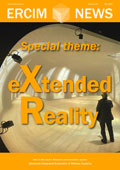
by Davide Basile, Maurice ter Beek, Felicita Di Giandomenico (CNR-ISTI), Laura Carnevali and Alessandro Fantechi (University of Florence)
Researchers from the Software Technologies Lab (STLAB) of the University of Florence and the two research labs Formal Methods and Tools (FMT) and Software Engineering and Dependable Computing (SEDC) of CNR-ISTI join forces to work on innovative solutions for the evaluation of railway systems. The research is conducted in the context of the national project ADVENTURE funded by the Italian Ministry for Universities and Research (MUR) under the program for Projects of National Interest (PRIN).
The Railway domain is expected to contribute significantly to the European Green Deal by improved digitalisation and data analytics. Challenges include the goal to “increase the levels of safety, security, reliability, and comfort, thereby maintaining the EU’s leadership in transport equipment manufacturing and services” [L1]. To this end, railway systems need to guarantee a set of expected Key Performance Indicators (KPIs) such as safety of the train movement, capacity (e.g. number of trains or passengers per time unit), energy efficiency, operating cost, etc. These KPIs are determined by the operation of innovative subsystems that cooperate towards the smooth performance of railway systems, supporting monitoring, command, and control of physical railway equipment.
The specific and complex interactions among these subsystems raise challenges that put at risk the accurate and efficient evaluation of the KPIs, as well as safe interoperability. First, to address them, it is necessary to overcome some current limitations of state-of-the-art hierarchical and compositional techniques for the estimation of non-functional attributes of component-based systems, in order to properly fit the railway needs. Second, advancements in formal specification of behavioural interfaces among heterogeneous components are required in order to improve the reliability of the composition of railway subsystems while reducing their cost.
The project ADVENTURE (ADVancEd iNtegraTed evalUation of Railway systEms) [L2] targets these challenges by developing innovative solutions for the evaluation of railway systems. The project focuses on the following three objectives, using Model-Driven Engineering (MDE) methods and multi-paradigm or multi-formalism approaches to help create bridges between different levels of abstraction:
- Qualitative evaluation of the safety of complex distributed railway systems, by means of diverse techniques like compositional model checking, synthesis of specifications provided as behavioural interfaces and tool support for relating specifications with implementations.
- Quantitative evaluation of dependability attributes despite of failures, in particular related to communication failures, by means of quantitative modelling and analysis of the timed failure logic of the system under analysis.
- Quantitative evaluation of trade-offs between availability/performance and energy efficiency, taking into account different smart policies of energy saving as well as failures, criticalities and priorities of the system under analysis.
The solutions developed during the project will be validated by their application to systems that are highly representative of the innovation trends in railways, namely decentralised interlocking, standard interfaces and smart de-icing systems.
A variety of formal methods and tools have successfully been applied to railway systems to address challenges in the railway domain, involving both qualitative and quantitative techniques [R1,R2,R3]. ADVENTURE aims to advance the state-of-the-art in the formal specification of railway interfaces as behavioural contracts, their formal verification and connection with implementations realised using a correct-by-design methodology. ADVENTURE also aims to advance the state-of-the-art in failure logic analysis of component-based systems. First, by the definition of an agile MDE approach tailored to the specific needs of the railway domain, concerning both the system structure and the mechanisms of failure propagation. Second, by the definition and integration of compositional analysis methods capable of handling the complexity of the railway systems being considered, in particular in terms of the number of components and failure modes. Finally, ADVENTURE aims to advance the modelling and analysis of smart deicing systems by introducing more comprehensive aspects, such as traffic load on individual railway switches.
ADVENTURE, funded by the European Union – NextGeneration EU, will run until November 2025 and is coordinated by Alessandro Fantechi from the University of Florence, who is moreover an expert member of the Scientific Steering Group of the Europe’s Rail Joint Undertaking [L3].
Links:
[L1] https://transport.ec.europa.eu/system/files/2021-04/2021-mobility-strategy-and-action-plan.pdf
[L2] https://stlab.dinfo.unifi.it/pages/projects/adventure/
[L3] https://rail-research.europa.eu/about-europes-rail/europes-rail-structure-of-governance/scientific-steering-group/
References:
[1] D. Basile, M. H. ter Beek, “Contract Automata Library,” Sci. Comput. Program, vol. 221, 2022. doi: https://doi.org/10.1016/j.scico.2022.102841
[2] L. Carnevali, et al., “Stochastic modeling and analysis of road-tramway intersections,” Innov. Syst. Softw. Eng., vol. 16, 2020. doi: https://doi.org/10.1007/s11334-019-00355-1
[3] S. Chiaradonna, et al., “Enhancing sustainability of the railway infrastructure: trading energy saving and unavailability through efficient switch heating policies,” Sustain. Comput. Inform. Syst., vol. 30, 2021. doi: https://doi.org/10.1016/j.suscom.2021.100519
Please contact:
Maurice ter Beek, CNR-ISTI










